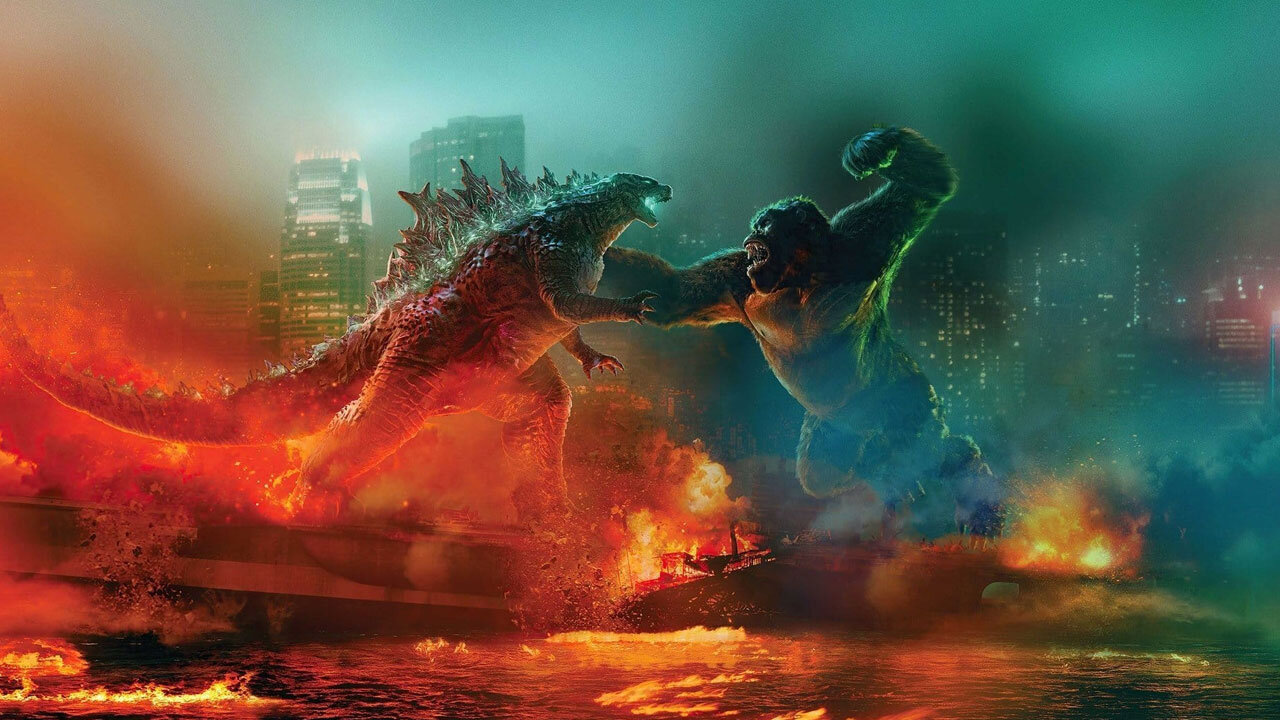The Midnight Sky

George Clooney stars in and directs The Midnight Sky, a sombre sci-fi film that’s far more accessible than his last sci-fi film (2002’s Solaris), but which nevertheless can’t quite shake the feeling that it’s an amalgam of ideas we’re seen before.
Premise: In the near future, an unspecified catastrophe has rendered the Earth uninhabitable and doomed the human race to extinction. Staying behind in a remote Arctic science station not yet overrun by the deadly radiation, Augustine Lofthouse (George Clooney) is determined to warn off the crew of an approaching spaceship, who are returning from an exploration mission to one of Jupiter’s moons. But his task is complicated when he realises that a young girl was left behind when the science station was evacuated.
Review:
It’s perhaps unfair to judge a film harshly for being too depressing just because we’re in the midst of a real-life global pandemic, but a film that starts with all life on Earth effectively being wiped out is not exactly the pick-me-up that we need right now. Even Augustine Lofthouse’s (George Clooney) mission of hope basically just boils down to trying to warn the crew of the Aether not to return to Earth, as they may now be the last five humans left in the universe.
Even leaving aside the real-world context in which this film will be watched, it’s still a pretty bleak premise. Arguably the main theme of the film is how different people might choose to spend their last days/hours once the prospect of a happily-ever-after ending is taken off the table, so viewers should know going into this film that they’re in for a fairly melancholy 2 hours.
“…George Clooney is very good, conveying his character through his physically & limited dialogue…”
The film is essentially a movie of two very different halves; one thread involves Augustine in the Arctic, while the other involves the crew of the Aether. Both threads are stylistically quite different, and both have their good points and bad points.
The Earth-based story focuses on Augustine (George Clooney) and the little girl he finds abandoned in the Arctic science station (Caoilinn Springall).This thread has very little dialogue, as the girl appears to be mute, and Augustine is clearly more focused on his mission to save the crew of the Aether than he is on babysitting an unwanted guest. George Clooney is very good at underplaying Augustine, and conveying his character both through his physically and through his limited dialogue. But when Augustine realises that they need to travel to another Arctic base to use a larger transmitter, this storyline becomes more of a disaster movie, chronicling the problems that Augustine and the girl encounter on their journey. Unfortunately, none of the obstacles they encounter are particularly dramatic or particularly memorable.
“…the interactions between the crewmates are probably the most enjoyable part of the film…”
The space-based storyline, on the other hand, strikes a very different tone. For a start, there’s much more dialogue (both professional and personal) between the crew, played by Felicity Jones, David Oyelowo, Kyle Chandler, Demián Bichir and Tiffany Boone. All five of these actors strike a believable balance between the calm professionalism that you would expect from an astronaut, and the easy, intimate back-and-forth that you could expect from crewmates that had spent that amount of time together. The interactions between the crewmates are probably the most enjoyable part of the film, although just as with the Earth-based storyline, the second half of the film seems to simply throw disaster-movie style problems at them just to add some dramatic tension to the film.
Nevertheless, the cast on board the Aether are all great, especially Felicity Jones, David Oyelowo and Kyle Chandler, who arguably get the most to do in terms of emotional character-based work. Demián Bichir brings a calming presence to the crew, even though he doesn’t have a great deal to do, and although Tiffany Boone’s character borders on the edge of cliché, she still makes her character feel three dimensional.
“…a third act development feels both predictable & emotionally underwhelming…”
Overall, one of The Midnight Sky’s main problems is that it just feels a little bit like an amalgamation of ideas from other films – everything from The Revenant and Gravity, to Life and The Cloverfield Paradox. That’s not to say that it doesn’t deal with these ideas well, it’s just that it all feels rather familiar. It also doesn’t help that nearly every character on screen is very emotionally buttoned down– although this may be a realistic character trait among astronauts and astrophysicists, it doesn’t make for an emotionally engaging drama (and don’t forget that Gravity, for example, found a way to convey emotion and calm professionalism in a similar environment).
Couple all of this with the film’s bleak and nihilistic tone, and a third act development that feels both predictable and emotionally underwhelming, and the end result is a movie that is worth a watch once, but which is unlikely to be something that I return to again any time soon.






